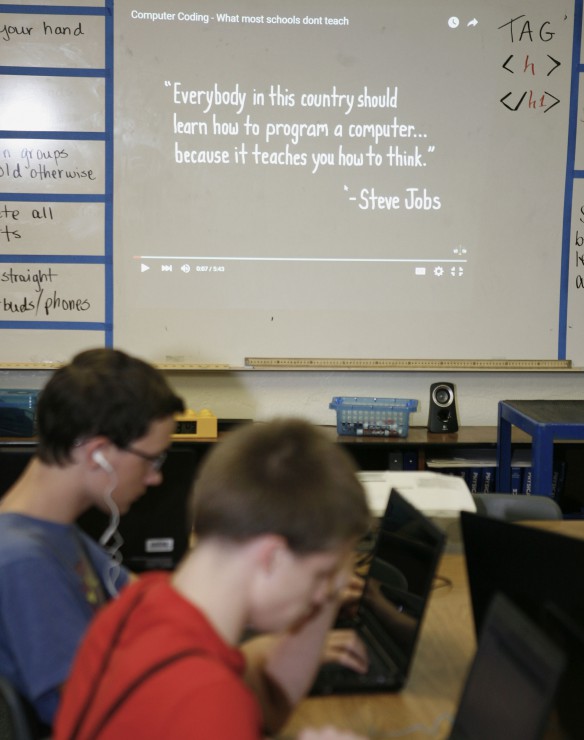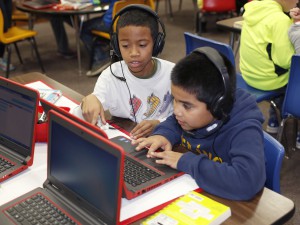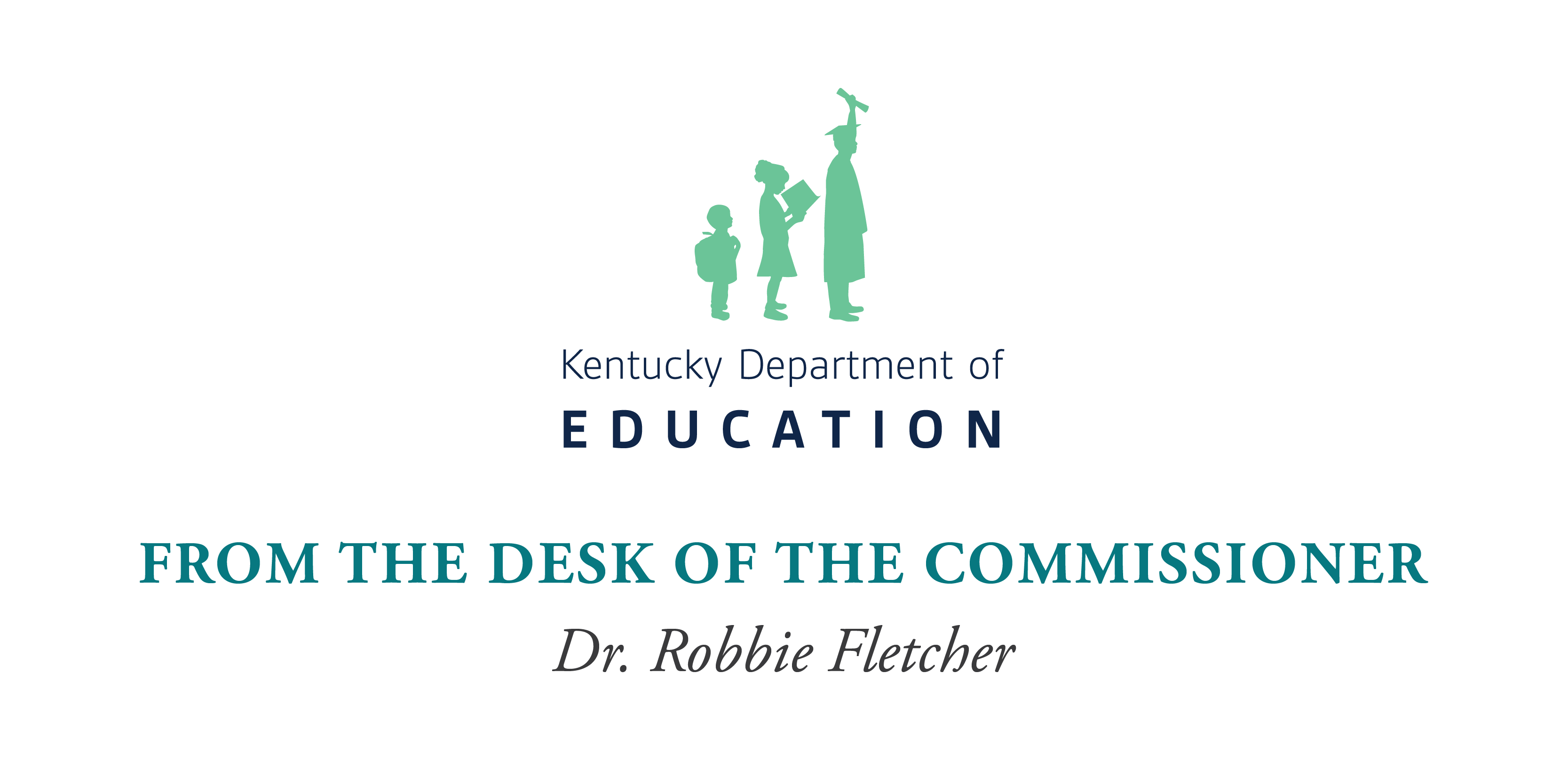
A quote from Apple Inc. co-founder Steve Jobs was projected on the whiteboard as students Robbie Craig, left, and Jayden Banks work at their computers during an Hour of Code activity last school year in Ashley Rosen’s integrated science class at the STEAM Academy (Fayette County).
Photo by Mike Marsee, Dec. 9, 2015
(FRANKFORT, Ky.) – Thousands of Kentucky students will get experience in computer coding starting today during Computer Science Week.
As part of the effort, students, teachers, parents and policymakers are encouraged to participate in an Hour of Code, a worldwide, hands-on experience in learning to write computer code.
Hundreds of Kentucky schools, businesses and organizations have signed up to participate in the fourth year of the event.
This year, there are more than 130,500 events registered worldwide for the Hour of Code. Since its inception, more than 100 million students in 180 countries have participated in such events.
“The Hour of Code is a great way to introduce students to computer science,” Commissioner of Education Stephen Pruitt said. “Coding teaches students technical skills and also fosters creativity and problem-solving skills that we know will give our students a competitive edge in any future career. Additionally, we know people with computer science skills and education are paid well and are in high demand, so we want to ensure our students are in the best position to take advantage of those career opportunities.”
The U.S. Bureau of Labor Statistics predicts that occupations related to science, technology, engineering and mathematics will grow to more than 9 million between 2012 and 2022, an increase of about 1 million jobs over 2012 levels.

Third-graders Tyrese Myrick and Omar Hernandez-Resa code on laptops during Hour of Code at Beechwood Elementary last school year.
Dec. 7, 2015
Brenna Kelly
In 2015, 7 million openings in the U.S. were in occupations – including art and design – that value coding skills, according to Code.org, a national, nonprofit organization that sponsors the Hour of Code. Additionally, computer science graduates enjoy the second-highest starting salary and the highest full-time employment rate (76 percent) within six months of graduation. Yet, by 2020, there will be one million more computing jobs than students graduating from college with computing skills.
No experience is necessary to participate in the Hour of Code. Students can choose from self-guided tutorials that work on any modern browser, tablet or cellphone and may take part even if they don’t have a computer.
Computer science education is growing in Kentucky. The number of students taking AP Computer Science is on the rise. The number of female students and minority students taking the course also has increased.
Kentucky Department of Education guidance states that based on course standards and the teacher of record, a computer science course can qualify as a fourth mathematics course or an elective science course if it involves computational thinking, problem solving, computer programming, and a significant emphasis on the science and engineering practices from the Kentucky Academic Standards.
For example, a student who takes and passes AP Computer Science, may count it as one of the mathematics credits required for graduation as defined by Kentucky’s minimum high school graduation requirements.
In addition to AP Computer Science, starting this school year students had the option to take the AP Computer Science Principles course. The course is focused on big ideas designed to help introduce computer science to students by focusing on how computing can impact the world. Additionally, the course takes a broader view of computer science that involves creativity, abstraction, data and information, algorithms, programming, the Internet and the impact of computing on the way people think, work, live and play.
In addition to the AP computer science courses, many Kentucky schools offer coding classes – either as part of their regular course offerings or as an extracurricular activity.




Leave A Comment